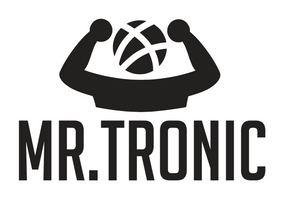Different Types of Ethernet Cables: A Comprehensive Guide
<h1>Understanding the Different Types of Ethernet Cables</h1>
<p>In this modern, digitally-connected world, it's essential to get to grips with the myriad of tech terms and tools at our disposal. One such crucial piece of hardware are Ethernet cables, which are often overlooked but vital for ensuring a stable and high-speed internet connection. Whether you're a business owner navigating the intricacies of a professional network or a home user seeking to optimise your home internet speed, understanding the different types of Ethernet cables and identifying the perfect option for your needs is of paramount importance.</p>
<h2>What Are Ethernet Cables?</h2>
<p>Ethernet cables play a vital role in internet connections by connecting devices such as computers, routers, and switches within a local area network (LAN). While Wi-Fi is commonly used for wireless connectivity, Ethernet cables offer a more reliable, stable, and generally faster connection.</p>
<h2>Different Types of Ethernet Cables</h2>
<p>Various types of Ethernet cables exist, each offering different levels of data transmission speed and noise resistance. The three most common types, which we'll discuss in-depth, include Cat 5E, Cat 6, and Cat 7.</p>
<h3><a href="https://www.amazon.co.uk/dp/B07GBZ2S9J">Mr. Tronic Grey Cat 5E Ethernet Cable 5m</a></h3>
<p>Category 5 Enhanced (Cat 5E) cables is an improved version of the original Cat 5 cables. Providing up to 1 gigabit per second speed at 100 meters, they were designed to significantly reduce signal interference. Notably, <a href="https://www.amazon.co.uk/dp/B07GBZ2S9J">Mr. Tronic's Grey Cat 5E Ethernet Cable 5m</a> exemplifies a high-quality Cat 5E cable that is designed to deliver reliable, fast network speed.</p>
<h3><a href="https://www.amazon.co.uk/dp/B079Y6B1MM">Mr. Tronic White Cat 6 Ethernet Cable 5m</a></h3>
<p>Featuring stricter specifications for reduced interference and faster speeds, Cat 6 cables generally offer performance of up to 10 gigabits for up to 55 meters. One such example, the <a href="https://www.amazon.co.uk/dp/B079Y6B1MM">Mr. Tronic White Cat 6 Ethernet Cable 5m</a>, demonstrates top-tier performance from the Cat 6 category, making it ideal for demanding network setups.</p>
<h3><a href="https://www.amazon.co.uk/dp/B08DL59Y2T">Mr. Tronic Black Cat 7 Ethernet Cable 5m</a></h3>
<p>Cat 7 cables are even more advanced, capable of delivering 10 gigabits per second at a full 100 metres, and come with additional noise reduction features. Encompassing these features is the <a href="https://www.amazon.co.uk/dp/B08DL59Y2T">Mr. Tronic Black Cat 7 Ethernet Cable 5m</a>, making it a prime option for serious networking needs.</p>
<h2>Choosing the Right Cable</h2>
<p>To choose the right Ethernet cable, consider your specific networking requirements and potential future needs. Businesses or users demanding high-speeds for data-intensive tasks or gaming might find the faster <a href="https://www.amazon.co.uk/dp/B08DL59Y2T">Mr. Tronic Black Cat 7 Ethernet Cable 5m</a> to be the more suitable option, while for those requiring a reliable internet connection for everyday usage, the <a href="https://www.amazon.co.uk/dp/B079Y6B1MM">Mr. Tronic White Cat 6</a> or <a href="https://www.amazon.co.uk/dp/B07GBZ2S9J">Grey Cat 5E Ethernet Cables 5m</a> may be sufficient.</p>
<h2>Conclusion</h2>
<p>Understanding the types of Ethernet cables is crucial to ensuring an optimal and reliable internet connection. With companies like Mr. Tronic providing high-quality cable options across different categories, users are well-equipped to find an Ethernet cable that perfectly aligns with their needs.</p>
